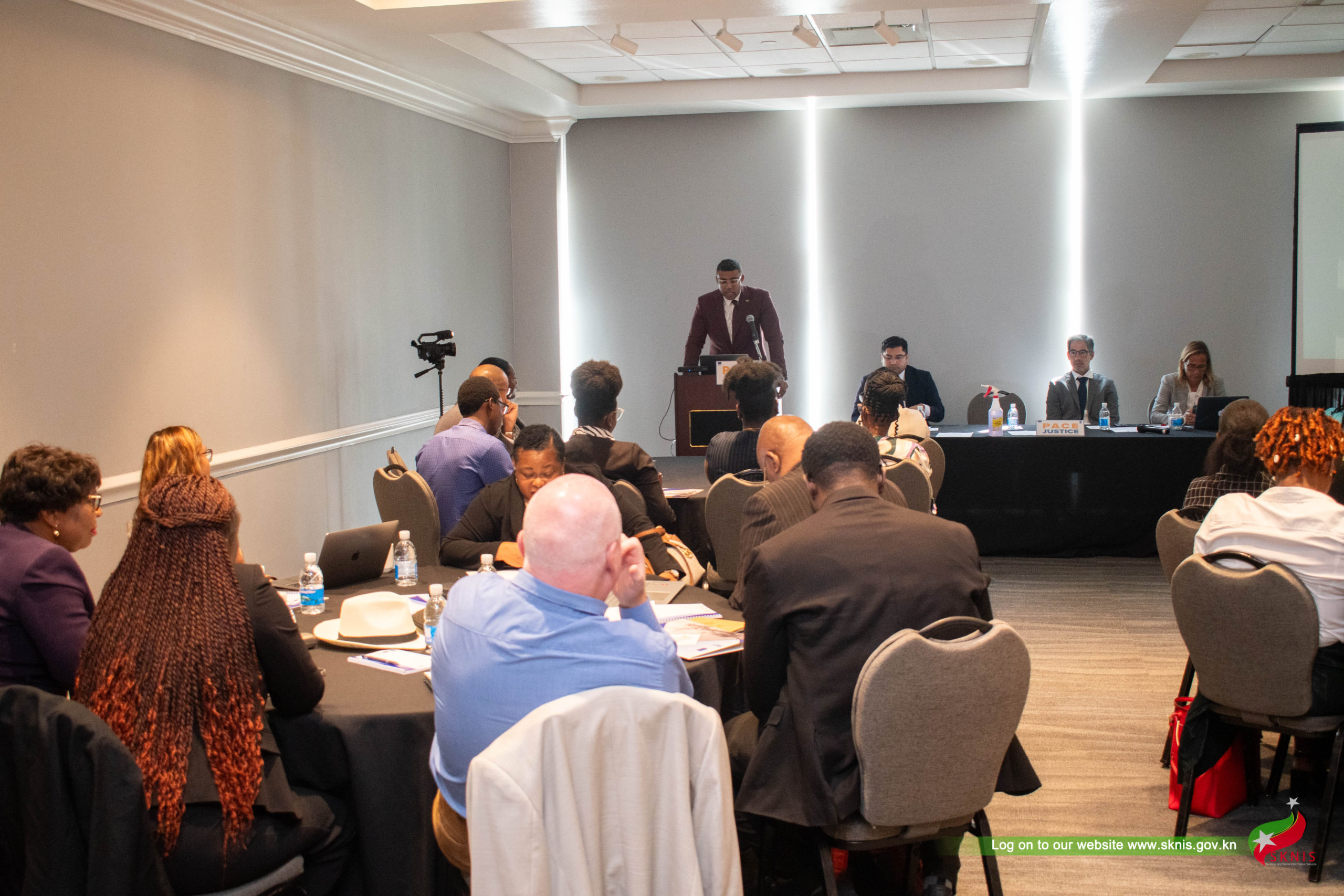Enhanced Case Management Training Bolsters Efficiency at the Ministry of Justice
Enhancing Judicial Efficiency in St. Kitts and Nevis: A Comprehensive Case Management Training Initiative
The justice system of St. Kitts and Nevis is undergoing a significant transformation aimed at enhancing efficiency, reducing backlogs, and strengthening public trust. A crucial step in this process is a two-day Case Management Training program held from September 22nd to 23rd, 2025, in Basseterre. This training, a collaborative effort between the Attorney General’s Office and Ministry of Justice and Legal Affairs and the UNDP PACE Justice Project funded by the European Union, brings together key stakeholders in the justice system, including judges, magistrates, prosecutors, defense counsel, registrars, and clerks of court. The primary objective of the training is to equip these professionals with the practical skills and knowledge necessary for efficient case management, thereby minimizing delays and fostering greater accountability within the system.
The Honorable Garth Wilkin, Attorney General and Minister of Justice and Legal Affairs, underscored the importance of the training in his opening remarks. He highlighted the detrimental impact of backlogs and delays on the efficiency of the justice system, emphasizing that prolonged trials and adjournments risk denying timely justice to victims, witnesses, and defendants. The Attorney General stressed that the training is focused on adopting practical measures to alleviate backlogs and enhance the overall efficiency of the courts. This initiative aligns with the government’s commitment to comprehensive justice reform, ensuring that justice in St. Kitts and Nevis is delivered fairly, effectively, and in a timely manner.
The training program covers a wide range of topics crucial for effective case management. Participants are delving into techniques and judicial controls designed to minimize delays, exploring the use of judicial sanctions and accountability measures for counsel as tools to improve courtroom culture. Through practical scenario-based exercises, they are honing their skills in narrowing issues, agreeing on facts, and enforcing preparation, all essential aspects of streamlining the legal process. The training also emphasizes the importance of judicial leadership in shifting from a reactive to a proactive approach to case flow management. Furthermore, time and stress management techniques are being explored to enhance the professional practice of legal practitioners. This comprehensive curriculum aims to empower participants with the necessary tools to navigate complex cases efficiently and effectively.
A distinguished panel of facilitators, including Justice of Appeal Mr. Boodoosingh, Justice Morley, Justice Thompson, Dr. Affonso, and Mr. García Muñoz, are leading the training sessions. These experts bring a wealth of global, regional, and practical experience to the program, providing participants with valuable insights and perspectives on best practices in case management. Their contributions are invaluable in enriching the learning experience and ensuring the training’s relevance to the specific challenges faced by the justice system in St. Kitts and Nevis.
The training program is also aligned with the commitments outlined in the Needham Point Declaration on Criminal Justice Reform. This declaration identifies case management and plea negotiations as pivotal elements in modernizing criminal justice systems throughout the Caribbean. By embracing these principles, St. Kitts and Nevis demonstrates its dedication to regional collaboration and adherence to international best practices in judicial reform.
This case management training initiative is part of a wider justice reform agenda in St. Kitts and Nevis, supported by the UNDP and the European Union. This broader agenda encompasses several key components, including the digitization of court processes, implementation of diversion and rehabilitation initiatives, and various institutional strengthening measures. All these efforts are strategically directed towards the overarching goal of reducing backlogs and ensuring timely access to justice for all citizens. The digitization of court processes is a critical aspect of this modernization effort, aiming to streamline administrative tasks, improve record keeping, and expedite legal proceedings. Diversion and rehabilitation programs are designed to offer alternative pathways to justice for certain offenders, focusing on rehabilitation and reintegration into society rather than solely on punishment. These programs contribute to reducing the burden on the court system while addressing the root causes of crime. The combined impact of these initiatives signifies a comprehensive commitment to transforming the justice system in St. Kitts and Nevis, ensuring its responsiveness to the needs of all citizens.
The success of the case management training and the broader justice reform agenda hinges on strong cooperation among key actors within the justice system. The Attorney General emphasized the importance of collaboration between the judiciary, prosecution, defense, and court administration, recognizing that effective case management requires a collective effort and shared responsibility. This collaborative approach ensures that all stakeholders are working towards a common goal of improving the efficiency and effectiveness of the justice system. By fostering a spirit of cooperation and shared commitment, St. Kitts and Nevis is laying the groundwork for a more robust and responsive justice system that serves the needs of all its citizens. This concerted effort underscores the nation’s dedication to upholding the principles of fairness, accessibility, and timely justice for all. The training program represents a significant investment in strengthening the foundations of the justice system and building a more equitable and accessible legal landscape for the people of St. Kitts and Nevis.
Share this content:












Post Comment